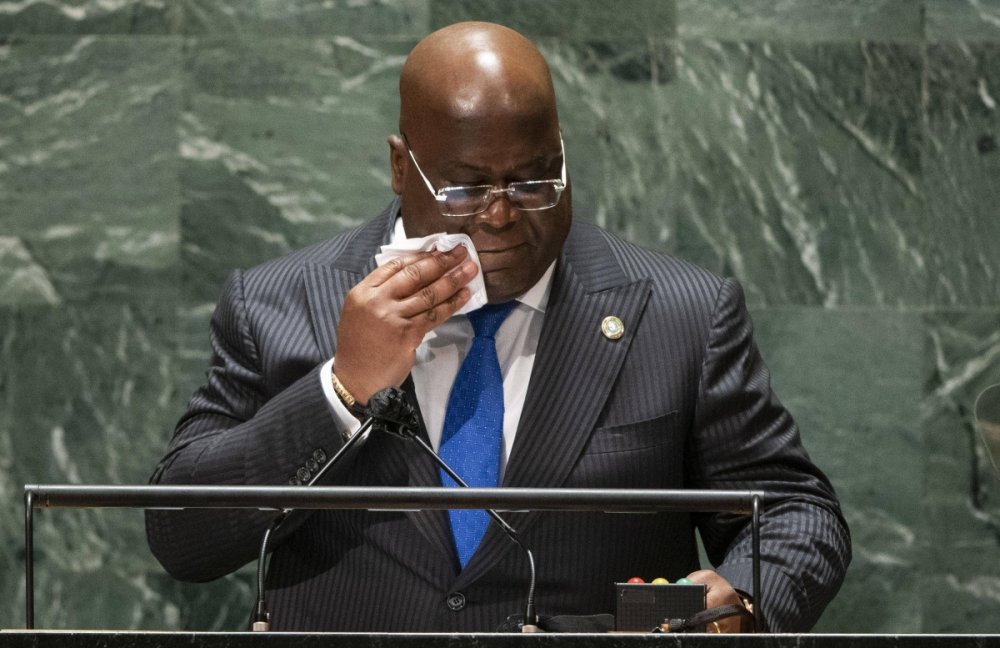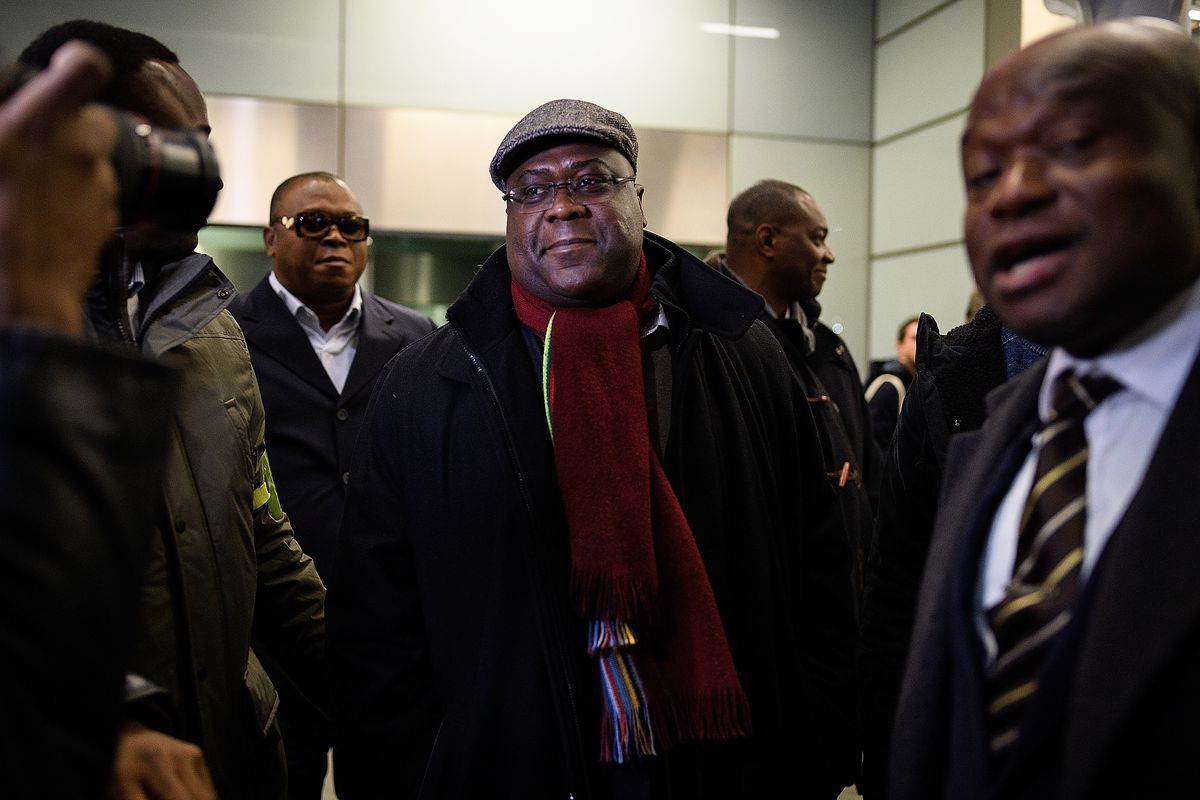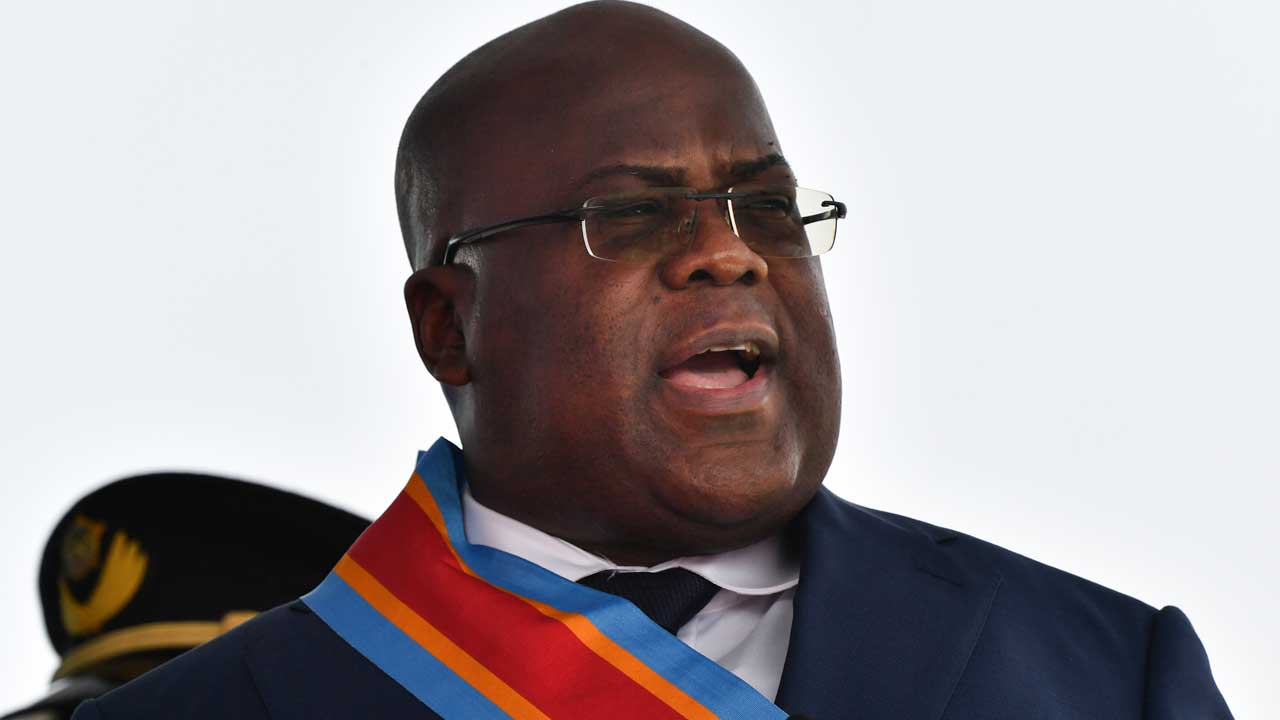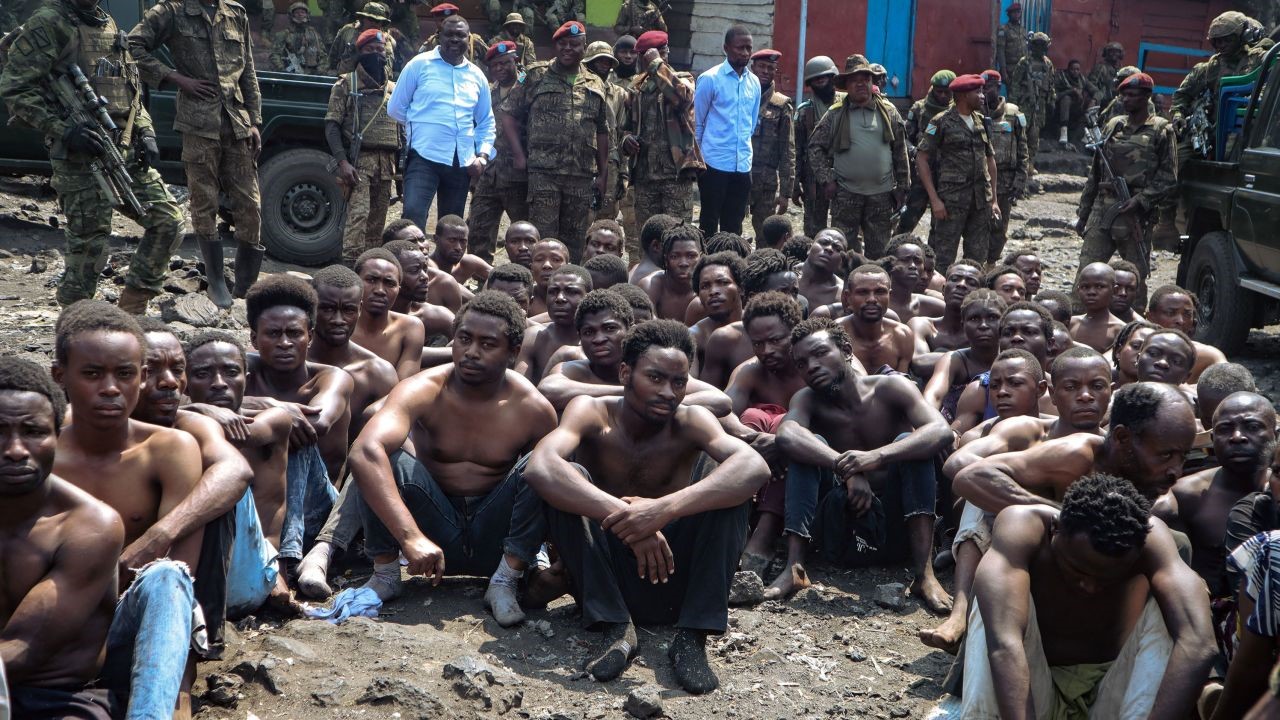Regional
DRC's Tshisekedi concocting more fabrications ahead of UN General Assembly

During the 77th session of the UN General Assembly in September 2022, Congolese President Félix Tshisekedi claimed that his efforts to reunite DRC and pursue peaceful settlements were dragged by external interference.
Congolese
President Félix Tshisekedi arrived in New York on September 17 to participate
in the 78th session of the UN General Assembly. He is expected to
speak on September 20, about insecurity in eastern DRC.
Before
his departure, Tshisekedi had already packaged the lies he will present at the
Assembly. Patrick Muyaya and Rose Mutombo, government spokesperson and Minister
of justice, respectively, are big chefs in the Congolese President’s kitchen of
lies.
Two
days prior Tshisekedi’s trip to New York, Muyaya and Mutombo presented volume 2
of the so-called “White Paper”, a collective book of, allegedly, a humanitarian
tragedy and damage, caused by ‘Rwanda's continued aggression’.
Tshisekedi’s
speech will be made up of the same allegations. Kinshasa has repeatedly accused
Kigali of backing the M23 rebellion that reemerged in eastern DRC in late 2021
after almost a decade of dormancy.
Kigali
has consistently denied the allegation, while pointing out that Kinshasa is
instead heavily
arming genocidal militia FDLR in a grand plan to wage war against Rwanda.
In the
previous session of the UN General Assembly, in September 2022, Tshisekedi
claimed that his efforts to reunite the country and pursue peaceful settlements
were dragged by continual external interference, accusing Rwanda, in
particular, of forming and supporting rebel movements in his country’s volatile
east.
“Despite
my goodwill for the search of peace, some neighbors have found no better way to
thank us than to aggress and support armed groups that are ravaging eastern
Congo,” Tshisekedi said.
Rwandan
President Paul Kagame, in the same session, noted that in eastern DRC, recent
setbacks served to highlight that the security situation is fundamentally no
different than it was 20 years earlier, when the largest and most expensive UN
peacekeeping mission was first deployed. This exposed neighbouring states,
notably Rwanda, to cross-border attacks that are entirely preventable.
“There
is an urgent need to find the political will to finally address the root causes
of instability in eastern DRC. The blame game does not solve the problems.
These challenges are not insurmountable, and solutions can be found,” Kagame
said.
Related: DRC
reignites accusation against Rwanda: Will blame games offer solution?
As to
be expected, Tshisekedi will hardly mention the way he is sabotaging regional
efforts to restore law and order in eastern DRC.
The East
African Community Regional Force has done a praiseworthy job since its
deployment to DRC in November 2022 but it has been subjected to a number of
attacks from the Tshisekedi regime, including hundreds of violent demonstrators
being unleashed against them.
Related: DRC:
EAC Regional Force’s mandate extended, Tshisekedi unsettled
While
regional leaders are working tirelessly to eliminate armed groups in eastern
DRC which now total over 260, Tshisekedi is busy creating
more local armed groups and equipping foreign ones.
Tshisekedi’s
agenda involves sustaining the conflict in his country so as to postpone the
December elections. This will effectively give him more time to steal the polls
and hence stay in power longer. Tshisekedi knows that he cannot win an election
like he did not in 2018.
At the
UN General Assembly, he will do everything to avoid the real national issues
affecting his people – issues such as the
ailing Congo Airways that suspended all flights on September 11; and the Goma
carnage where the national army indiscriminately opened fire on unarmed
protesters, leaving at least 56 civilians dead, 220 injured and 60 arrested, on
August 30.
Generally, Tshisekedi’s ambitions are focused on his
personal political future rather than national interests. The vast natural
resource-rich country’s massive development needs remain sidelined as
Tshisekedi plays lethal politics.
For
five years, Tshisekedi has made no effort to tackle endemic corruption,
patronage politics, reform politicised institutions such as the National
Electoral Commission and the Constitutional Court and break up the networks of
military-economic interests that maintain the current status quo.
Tshisekedi’s
administration made zero progress on promised systemic reforms to break the
cycles of violence, abuse, corruption, and impunity that have plagued the
country for decades.
But he
will not talk about these failures at the UN General Assembly. He will talk
about Rwanda's alleged aggression. He will not tell the world about the Rwandan
genocidal force, FDLR, that he continues to host and support. But he will
appeal to the UN system to reprimand Rwanda for its alleged role in fueling the
conflict in eastern DRC and preventing him from delivering for his people.







